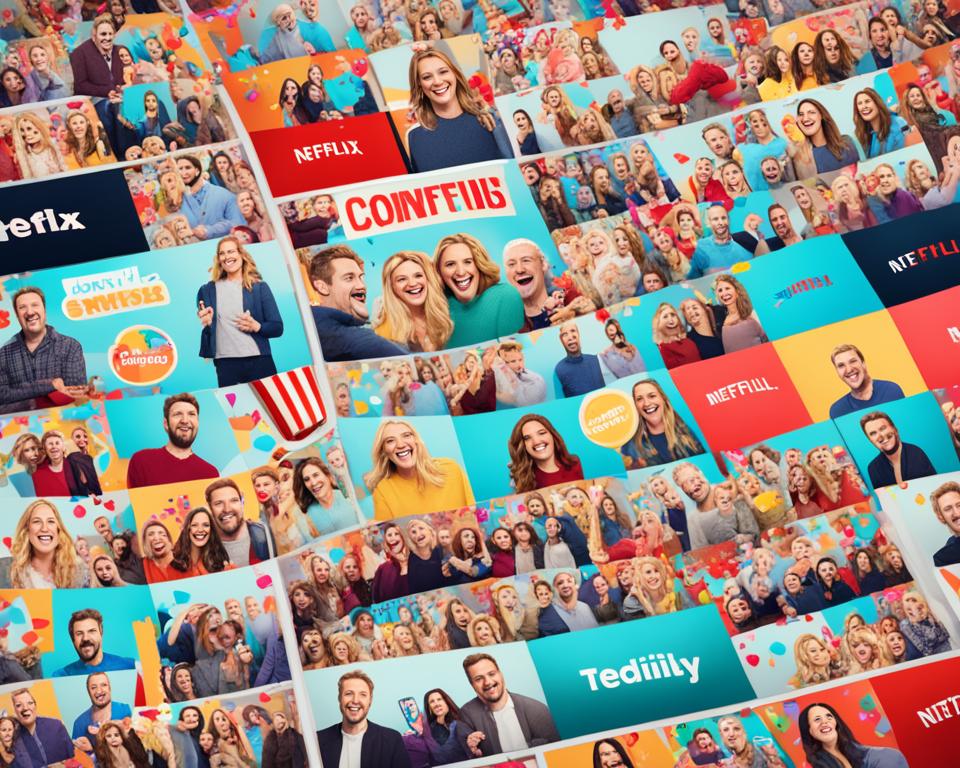Netflix, the renowned streaming service, has become a household name and a go-to platform for entertainment. But how did it achieve such widespread popularity and success? Let’s delve into the history of Netflix and its journey to becoming a global phenomenon.
Key Takeaways:
- Netflix was founded on August 29, 1997, and launched its website in April 1998.
- The company initially focused on DVD rentals by mail, shipping its first DVD, Beetlejuice, in March 1998.
- In 2007, Netflix introduced streaming, revolutionizing the way people consume content.
- With the release of its first original series, Lilyhammer, in 2012, Netflix began creating its own exclusive content.
- Netflix’s popularity surged in the 2010s, with hits like Stranger Things, Money Heist, and The Queen’s Gambit captivating audiences worldwide.
Over the years, Netflix has expanded its reach and now offers its services in over 190 countries, available in more than 37 languages. Through its innovative approach to content delivery and commitment to producing compelling original shows, Netflix has risen to prominence and left an indelible mark on the entertainment industry.
Table of Contents
The Founding of Netflix: How It Happened
Netflix, the globally recognized streaming giant, was founded in 1997 by Reed Hastings and Marc Randolph. The story behind the company’s inception is a fascinating one, highlighting the entrepreneurial spirit and innovative thinking of its founders.
Reed Hastings, one of the co-founders, came up with the idea for Netflix after being hit with a $40 late fee for a rental movie. Frustrated by this experience, Hastings saw an opportunity to disrupt the traditional video rental market.
Meanwhile, Marc Randolph, the other co-founder, was searching for a business idea that could compete with Amazon. It was during a car ride that the two friends brainstormed and the concept of Netflix started taking shape.
They recognized the potential of DVDs, which were gaining popularity at the time, and realized that these discs could be conveniently sent through the mail. This groundbreaking idea paved the way for the unique DVD rental-by-mail service that would become Netflix.
To test the viability of their concept, Hastings and Randolph conducted an initial trial with a CD. The successful test proved that their idea was not only feasible but also highly promising.
The founding of Netflix showcases the power of inspiration and the ability to identify untapped opportunities. Hastings’ frustration with late fees and Randolph’s drive to compete with Amazon were the catalysts that led to the birth of a revolutionary entertainment platform.
Today, Netflix stands as a testament to their vision and hard work, serving millions of subscribers worldwide with a vast library of content that caters to diverse interests and tastes.
Meet the Founders: Reed Hastings and Marc Randolph
Reed Hastings, the co-founder and co-CEO of Netflix, is an accomplished entrepreneur and philanthropist. He has played a pivotal role in shaping the company’s growth and success. Marc Randolph, the other co-founder, is a seasoned entrepreneur and executive who has made significant contributions to the development of Netflix.
| Year | Key Milestone |
|---|---|
| 1997 | Netflix founded by Reed Hastings and Marc Randolph |
| 2007 | Netflix starts streaming service |
| 2012 | Launch of the first Netflix Original, Lilyhammer |
| 2016 | Expansion to 130 countries |
Netflix Through the Decades
As Netflix celebrates its 25th anniversary, let’s take a journey through the decades to explore how the streaming giant has evolved and revolutionized the entertainment industry.
The 1990s: DVD Rentals by Mail
In the 1990s, Netflix operated as a DVD-by-mail rental service. The company allowed subscribers to browse and rent DVDs from an extensive library, which were then delivered to their doorstep. By the end of 1999, Netflix had amassed a subscriber base of 239,000, paving the way for its future success.
The 2000s: Going Public and Embracing Streaming
In the early 2000s, Netflix made a groundbreaking move by going public. This step allowed the company to expand its operations and reach a wider audience, solidifying its position as a key player in the entertainment industry.
During this era, Netflix also recognized the potential of streaming technology and introduced its first streaming service. This marked a significant shift in the way consumers consumed content, as it granted them instant access to a vast catalog of movies and TV shows from the comfort of their homes.
The 2010s: Focus on Original Content
In the 2010s, Netflix shifted its focus toward producing original content. The company understood that exclusive, high-quality shows and movies would be essential in attracting and retaining subscribers.
With popular original series like “Stranger Things,” “Money Heist,” and “The Queen’s Gambit,” Netflix captured the hearts and attention of audiences worldwide. This strategic move not only set Netflix apart from its competitors but also propelled it to new heights of success.
The 2020s: Adapting to Changing Trends
The 2020s brought both challenges and opportunities for Netflix. The COVID-19 pandemic led to a surge in streaming activity, as people sought entertainment and solace at home. Netflix experienced a significant increase in its user base during this period.
However, the company has not been complacent. In response to evolving viewer preferences, Netflix is exploring ad-supported tiers and other streaming formats, ensuring that it remains at the forefront of the rapidly changing streaming landscape.
| Decade | Key Development |
|---|---|
| 1990s | DVD rentals by mail |
| 2000s | Going public and embracing streaming |
| 2010s | Focus on original content |
| 2020s | Adapting to changing trends |
Netflix Acquisitions
Netflix has strategically acquired several companies and assets to enhance its content offerings and solidify its position in the entertainment industry. Some of the notable acquisitions made by Netflix include:
Grauman’s Egyptian Theatre
One of the iconic acquisitions by Netflix is the Grauman’s Egyptian Theatre, which the company acquired in 2020. The historic theater, located in Hollywood, California, has a rich legacy dating back to its opening in 1922. With this acquisition, Netflix aims to showcase its original films and host special events, further establishing its presence in the heart of the entertainment industry.
StoryBots
Netflix acquired the educational media brand StoryBots in 2019. StoryBots is known for its award-winning content that engages and educates children through entertaining animated series, books, and interactive apps. This acquisition has strengthened Netflix’s content library for younger audiences and expanded its offerings in the educational space.
Millarworld
In 2017, Netflix acquired Millarworld, the comic book publishing company founded by renowned writer Mark Millar. This acquisition has given Netflix access to Millarworld’s extensive catalog of intellectual properties, including popular titles like “Kick-Ass” and “Kingsman.” The collaboration has resulted in the production of original series and movies based on Millarworld’s iconic characters and stories.
Next Games
Next Games, a Finnish gaming company known for developing mobile games based on popular entertainment franchises, was acquired by Netflix in 2021. This acquisition allows Netflix to expand its presence in the gaming industry and explore new opportunities to engage its audience through interactive experiences.
Albuquerque Studios
In 2018, Netflix acquired Albuquerque Studios, a state-of-the-art film and television production facility located in Albuquerque, New Mexico. This acquisition enables Netflix to have a dedicated hub for production in the Southwest region of the United States, known for its diverse landscapes and attractive tax incentives. Albuquerque Studios has provided a home for various Netflix productions, including the hit series “Breaking Bad.”
Netflix Acquisitions
| Acquisition | Year |
|---|---|
| Grauman’s Egyptian Theatre | 2020 |
| StoryBots | 2019 |
| Millarworld | 2017 |
| Next Games | 2021 |
| Albuquerque Studios | 2018 |
Netflix’s Notable Controversies
Throughout its history, Netflix has been at the center of various controversies. Some of the most notable controversies include:
1. Portrayal of Child Sexualization in the Film Cuties
The film Cuties, released in 2020, sparked a significant controversy for its portrayal of young girls and its potential to sexualize them. The film, directed by Maïmouna Doucouré, explores the story of an 11-year-old girl who joins a dance group. While the intention was to shed light on the hypersexualization of young girls in today’s society, many viewers felt that the film crossed the line.
2. Cultural Appropriation in the Film Step Sisters
The film Step Sisters, released in 2018, received criticism for its depiction of cultural appropriation. The comedy follows a black sorority president who is tasked with teaching a white sorority how to step dance. Critics argued that the film perpetuated stereotypes and failed to address cultural appropriation with the sensitivity it deserved.
3. Harmful Jokes About the Transgender Community in Dave Chappelle’s Comedy Special The Closer
Dave Chappelle’s comedy special The Closer, released in 2021, faced backlash for its inclusion of harmful jokes targeting the transgender community. Many viewers and LGBTQ+ advocates felt that the jokes were offensive and perpetuated harmful stereotypes, leading to calls for Netflix to remove the special from its platform.
4. Stereotyping in Shows Like Atypical
The Netflix original series Atypical, which premiered in 2017, received criticism for its portrayal of autism. Critics argued that the show relied on stereotypes and failed to accurately represent the experiences of individuals on the autism spectrum.
These controversies highlight the challenges that Netflix has faced in navigating sensitive topics and choosing and producing content that appeals to a wide audience while avoiding harmful portrayals or interpretations.
| Controversy | Year | Description |
|---|---|---|
| Portrayal of Child Sexualization in the Film Cuties | 2020 | Exploration of the hypersexualization of young girls in society. |
| Cultural Appropriation in the Film Step Sisters | 2018 | Depiction of cultural appropriation in a comedy focused on step dancing. |
| Harmful Jokes About the Transgender Community in Dave Chappelle’s Comedy Special The Closer | 2021 | Inclusion of offensive jokes targeting the transgender community. |
| Stereotyping in Shows Like Atypical | 2017 | Criticism of inaccurate portrayal of autism and reliance on stereotypes. |
While these controversies have sparked debates and discussions, Netflix continues to face challenges in balancing creative expression and social responsibility.
Netflix’s Efforts to Communicate Its History
At Netflix, effective employee communication is a key priority. The company recognizes the importance of sharing its history with new hires, providing them with a comprehensive understanding of Netflix’s journey and milestones. By imparting knowledge about the company’s past, Netflix fosters a sense of connection and pride among its employees.
Netflix believes that by familiarizing new hires with its rich history, it can instill a deep appreciation for the company’s values and culture. This understanding helps employees align themselves with Netflix’s mission and work towards its continued success.
One of the ways Netflix communicates its history is through onboarding programs and orientation sessions specifically designed for new employees. These programs involve various interactive activities, presentations, and materials that showcase the significant moments in Netflix’s evolution.
For example, through engaging presentations, employees are introduced to key milestones in Netflix’s growth, such as the launch of the streaming service, the expansion to international markets, and the production of pioneering original content. By highlighting these milestones, Netflix emphasizes its commitment to innovation and its journey towards becoming one of the world’s leading entertainment companies.
In addition to onboarding programs, Netflix also maintains internal resources, including a comprehensive intranet and a digital library, where employees can access detailed information about the company’s history. These resources provide easy access to important documents, articles, and videos that chronicle Netflix’s transformation over the years.
Furthermore, Netflix encourages a culture of storytelling within the organization. Employees are encouraged to share their experiences and anecdotes related to Netflix’s history, creating a rich tapestry of narratives that further strengthen the company’s sense of identity and community.
In conclusion, Netflix’s commitment to transparently communicating its history reflects its dedication to creating an inclusive and informed workforce. By instilling a deep understanding of its past, Netflix empowers its employees to contribute meaningfully to its future endeavors.
Netflix Competitors
Netflix faces stiff competition in the streaming industry from a number of prominent companies. These competitors offer their own streaming services and produce original content to attract viewers. Let’s take a closer look at some notable Netflix rivals.
HBO
HBO, known for its high-quality programming, is a major competitor to Netflix. The network has its own streaming service called HBO Max, which offers a wide range of popular TV shows and movies. HBO has produced acclaimed series like “Game of Thrones,” “Westworld,” and “Succession,” making it a formidable opponent for Netflix.
Hulu
Hulu is another major player in the streaming industry and poses a significant challenge to Netflix. Owned by Disney, Comcast, and WarnerMedia, Hulu offers a vast catalog of TV shows, movies, and original content. It has gained popularity for its exclusive access to current and past seasons of popular TV shows, making it an attractive alternative for viewers.
Sony Pictures
Sony Pictures Entertainment has entered the streaming arena with its platform, Crackle. Although smaller in scale compared to Netflix, Sony Pictures still presents formidable competition. Crackle offers a range of movies and TV shows, including original content. With its strong lineup of movies and a growing library of original programming, Crackle aims to carve out its own niche in the streaming market.
Starz
Starz, a premium cable and satellite network, has also embraced the streaming revolution. The network offers its own streaming service, Starz Play, which provides access to a variety of movies and original series. Starz has garnered critical acclaim for shows like “Outlander” and “Power,” and its competitive pricing makes it an attractive alternative to Netflix.
These competitors, among others, are vying for viewers’ attention in the crowded streaming market. With each company offering unique content and features, the competition continues to intensify.
| Competitor | Streaming Service | Key Features |
|---|---|---|
| HBO | HBO Max | High-quality programming, acclaimed series |
| Hulu | Hulu | Exclusive access to current and past seasons of popular TV shows |
| Sony Pictures | Crackle | Range of movies, growing library of original programming |
| Starz | Starz Play | Strong lineup of movies, critically acclaimed original series |
Conclusion
Netflix, founded in 1997, has come a long way to become a globally recognized streaming giant. With its innovative approach to content delivery and adaptability to changing trends, Netflix has achieved remarkable success. Its extensive library of content caters to diverse tastes and preferences, making it a popular choice for entertainment enthusiasts worldwide.
Netflix has revolutionized the way people consume entertainment. The convenience of streaming movies and TV shows at any time and on any device has transformed the traditional viewing experience. By introducing original programming and collaborating with renowned creators, Netflix has raised the bar for quality content, captivating audiences with compelling stories and groundbreaking productions.
The impact of Netflix extends beyond personal viewing habits. The company has disrupted the traditional entertainment industry, challenging established networks and production studios. Its success has inspired other streaming services to innovate and invest in original content, transforming the landscape of television and film. Netflix continues to shape the future of the industry, constantly pushing boundaries and redefining the standards of storytelling.


